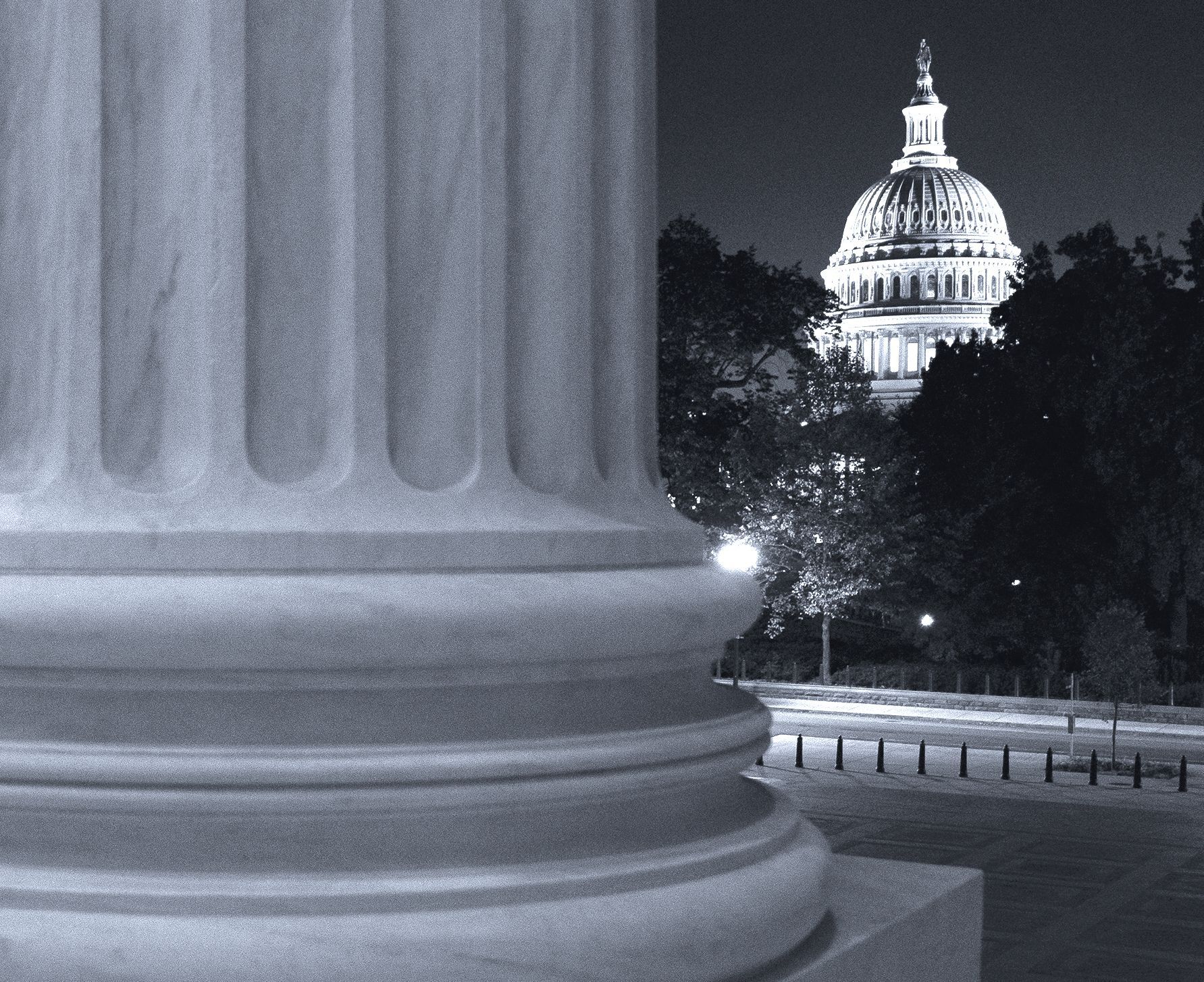
April 11, 2022
The U.S. Department of Treasury’s Office of Foreign Assets Control (OFAC or the Treasury) unveiled a new wave of sanctions targeted against Russia, Russian entities, and Russian individuals during the week of April 4, in response to Russia’s continued aggression in Ukraine. On April 8, the U.S. Department of Commerce also expanded its license requirements for Russia and Belarus to include all items on the Commerce Control List (CCL). These actions come on the heels of a third tranche of sanctions imposed last month, which both implemented new trade restrictions on Russia and Belarus and offered clarification on previous actions taken by the Biden administration. As with the previous rounds, these sanctions were coordinated with the European Union and other G7 countries to present a united front and prevent the emergence of any safe haven for Russia.
These newest sanctions specifically target Russian financial institutions, state-owned enterprises, and elites, outbound foreign direct investment to Russia, and debt payments using funds subject to U.S. jurisdiction. While the pace of sanctions activity has decreased somewhat, these sanctions build on dozens of announcements spanning the past six weeks targeting the Russian defense and aerospace sector, Russian elites, and Russian state-owned enterprises. The Treasury also published new General Licenses authorizing wind-down periods and certain limited activities with Russian financial institutions.
Expanded Export Controls on CCL Items
On April 8, the U.S. Department of Commerce’s Bureau of Industry and Security (BIS) expanded its previously implemented license requirements for Russia and Belarus from CCL categories 3-9 to now include all items on the CCL. The new license requirement will impact certain composite materials, medical products containing certain toxins or genetically modified organisms, hydraulic fluids, pumps, valves, and lower-level machine tools, among other items. The newly expanded requirements also apply to the Foreign Direct Product Rule, which requires a BIS license for items produced outside the U.S. with U.S.-origin software or technology. Similar to the export control regulations impacting Russia and Belarus described in our previous alerts here and here, these new export control measures specify a licensing review policy of denial. This means that, unless the regulations specifically permit a case-by-case review, any new license applications to export, reexport, or transfer (in-country) items will be denied.
Full Blocking Sanctions Targeting Sberbank, Alfa-Bank
Sberbank is the largest public bank and the holder of about a third of all bank assets in Russia. Originally subject to sanctions going back to 2014 (Executive Order (E.O.) 13662), in February OFAC identified Sberbank as subject to new prohibitions pursuant to Directive 2 under E.O. 14024 (concerning certain correspondent accounts and payable through accounts, or CAPTA), also called the “Russia-related CAPTA Directive,” and pursuant to Directive 3 under E.O. 14024, the Russia-related Entities Directive. As of April 6, OFAC has expanded President Biden’s February sanctions by designating Sberbank pursuant to E.O. 14024, meaning that Sberbank and 42 of its subsidiaries are now subject to full blocking sanctions; all assets from Sberbank and the designated Sberbank subsidiaries touching a U.S. financial institution will be frozen and U.S. persons are prohibited from doing business with Sberbank and the identified subsidiaries.
Alfa-Bank is Russia’s largest private bank. The announcement imposed full blocking sanctions on Alfa-Bank, six of its subsidiaries, and five related vessels, also freezing any such Alfa-Bank assets touching the U.S. and prohibiting U.S. persons from doing business with the bank or its designated subsidiaries.
OFAC’s 50 percent rule continues to apply, meaning that all property and interest in property of entities owned 50 percent or more, directly or indirectly, by Sberbank, Alfa-Bank, or any listed subsidiaries are blocked under E.O. 14024, even if not designated by OFAC.
In addition, the Treasury clarified that Russia is now prohibited from making debt payments with funds subject to U.S. jurisdiction. Sanctions do not preclude payments on Russian sovereign debt, provided that Russia uses funds outside of U.S. jurisdiction.
Russian State-Owned Enterprises, Defense and Aerospace Companies Targeted
On April 7, full blocking sanctions were imposed on critical Russian state-owned enterprise (SoE) Public Joint Stock Company Alrosa, the world’s largest diamond mining company, and United Shipbuilding Corporation, the entity responsible for construction of almost all of Russia’s warships, including those used by the Russian military against Ukraine. The U.S. Department of State’s designation of United Shipbuilding Corporation includes sanctions imposed not only against the shipbuilding enterprise itself, but also eight members of its board of directors and 28 related subsidiaries. These sanctions against Public Joint Stock Company Alrosa and United Shipbuilding Corporation will prohibit any U.S. person from doing business with these entities and freeze any of their assets subject to U.S. jurisdiction. These build on the sanctions announced on 48 Russian defense and aerospace companies just a few weeks prior, which OFAC explained will cut them off from western technological and financial resources, causing “a deep and long-lasting effect on Russia’s defense-industrial base and its supply chain.”
New Sanctions Targeting Russian Elites and Government Officials
OFAC is continuing to amend its List of Specially Designated Nationals (SDN List), most recently adding Russian President Vladimir Putin's two adult daughters, Russian Foreign Minister Sergei Lavrov's wife and daughter, former Russian president Dmitry Medvedev, Russian Prime Minister Mikhail Mishustin, Justice Minister Konstantin Chuychenko, and other senior members of Russia's security council. These additions to the SDN list expand on earlier designations of Russian government officials from past weeks, including 328 of the members of the State Duma of the Federal Assembly of the Russian Federation, the State Duma itself, and financial elites such as the board members of Sovcombank and the CEO of Sberbank. This action denies access by these individuals to the U.S. financial system and freezes any assets that they hold in the U.S.
Investment Ban
Last week, President Biden issued a new executive order, E.O. 14071, prohibiting new investment in Russia and the provision of certain services to persons located in Russia by U.S. persons. The new order bars investment by U.S. companies in their Russia facilities, or in new companies located in Russia. OFAC has not yet published guidance on interpretation of the term “new investment” or the services that will be impacted by the prohibition.
New General Licenses
OFAC issued six new general licenses on April 6 and five on April 7 which authorize certain types of transactions and implement wind-down periods with listed Russian banks for activities otherwise prohibited by the Russian Harmful Foreign Activities Sanctions Regulations (RuHSR), as detailed in the chart below. This chart is meant to summarize the relevant financial institutions and transactions covered; please consult the general licenses to confirm specifics and any relevant exceptions.
| GL# to the RuHSR | Bank | Transactions Covered | Relevant Date |
| General License 8B April 6, 2022 |
State Corporation Bank for Development and Foreign Economic Affairs Vnesheconombank | “Transactions Related to Energy” All energy-related transactions prohibited under E.O. 14024 are authorized with these banks. “Related to energy” means the extraction, production, refinement, liquefaction, gasification, regasification, conversion, enrichment, fabrication, transport, or purchase of petroleum, including crude oil, lease condensates, unfinished oils, natural gas liquids, petroleum products, natural gas, or other products capable of producing energy, such as coal, wood, or agricultural products used to manufacture biofuels, or uranium in any form, as well as the development, production, generation, transmission, or exchange of power, through any means, including nuclear, thermal, and renewable energy sources. | The specified transactions are authorized through 12:01 a.m. EDT, June 24, 2022 |
| Public Joint Stock Company Bank Financial Corporation Otkritie | |||
| Sovcombank Open Joint Stock Company | |||
| Public Joint Stock Company Sberbank of Russia | |||
| VTB Bank Public Joint Stock Company | |||
| Joint Stock Company Alfa-Bank | |||
| Central Bank of the Russian Federation | |||
| General License 9C April 7, 2022 |
State Corporation Bank for Development and Foreign Economic Affairs Vnesheconombank | “Transactions Related to Dealings in Certain Debt or Equity” All transactions prohibited under RuHSR that are ordinarily incident and necessary to dealings in debt or equity of one or more of these entities issued prior to February 24, 2022 are authorized through May 25, 2022. | The specified transactions are authorized through 12:01 a.m. EDT, May 25, 2022 |
| Public Joint Stock Company Bank Financial Corporation Otkritie | |||
| Sovcombank Open Joint Stock Company | |||
| Public Joint Stock Company Sberbank of Russia | |||
| VTB Bank Public Joint Stock Company | |||
| General License 10C April 7, 2022 |
State Corporation Bank for Development and Foreign Economic Affairs Vnesheconombank | “Certain Transactions Related to Derivative Contracts” All transactions prohibited under RuHSR that are ordinarily incident and necessary to the wind down of derivative contracts that (i) include one of the following entities (together, the “Russian financial institution entities”) as a counterparty or (ii) are linked to debt or equity of a Russian financial institution entity, are authorized. | The specified transactions are authorized through 12:01 a.m. EDT, May 25, 2022 |
| Public Joint Stock Company Bank Financial Corporation Otkritie | |||
| Sovcombank Open Joint Stock Company | |||
| Public Joint Stock Company Sberbank of Russia | |||
| VTB Bank Public Joint Stock Company | |||
| General License 21A April 7, 2022 |
Sberbank CIB USA, Inc. | “Wind Down of Sberbank CIB USA, Inc. and Alrosa USA, Inc.” U.S. persons are authorized to engage in all transactions ordinarily incident and necessary to the wind down of Sberbank CIB USA, Inc. or Alrosa USA, Inc., or any entity in which Sberbank CIB USA, Inc. or Alrosa USA, Inc. owns, directly or indirectly, a 50 percent or greater interest, that are prohibited by the RuHSR, including the processing and payment of salaries, severance, and expenses; payments to vendors and landlords; and closing of accounts. | The specified transactions are authorized through 12:01 a.m. EDT, June 7, 2022 |
| Alrosa USA, Inc. | |||
| General License 22 April 6, 2022 |
Public Joint Stock Company Sberbank of Russia | “Wind Down of Transactions Involving Public Joint Stock Company Sberbank of Russia” All transactions prohibited by E.O. 14024 that are ordinarily incident and necessary to the wind down of transactions involving Public Joint Stock Company Sberbank of Russia (“Sberbank”) or any entity in which Sberbank owns, directly or indirectly, a 50 percent or greater interest, are authorized. | The specified transactions are authorized through 12:01 a.m. EDT, April 13, 2022 |
| General License 23 April 6, 2022 |
Joint Stock Company Alfa-Bank | “Wind Down of Transactions Involving Joint Stock Company Alfa-Bank” All transactions prohibited by E.O. 14024 that are ordinarily incident and necessary to the wind down of transactions involving Joint Stock Company Alfa-Bank (“Alfa-Bank”) or any entity in which Alfa-Bank owns, directly or indirectly, a 50 percent or greater interest are authorized. | The specified transactions are authorized through 12:01 a.m. EDT, May 6, 2022 |
| General License 24 April 7, 2022 |
Public Joint Stock Company Alrosa | “Wind Down of Transactions Involving Public Joint Stock Company Alrosa” All transactions prohibited by E.O. 14024 that are ordinarily incident and necessary to the wind down of transactions involving Public Joint Stock Company Alrosa (“Alrosa”) or any entity in which Alrosa owns, directly or indirectly, a 50 percent or greater interest are authorized. | The specified transactions are authorized through 12:01 a.m. EDT, May 7, 2022 |
| General License 25 April 7, 2022 |
“Transactions Related to Telecommunications and Certain Internet-Based Communications” All transactions ordinarily incident and necessary to the receipt or transmission of telecommunications involving Russia that are prohibited by the RuHSR are authorized. The exportation or reexportation, sale, or supply, from the U.S. or by U.S. persons, to Russia of services, software, hardware, or technology incident to the exchange of communications over the internet, such as instant messaging, videoconferencing, chat and email, social networking, sharing of photos, movies, and documents, web browsing, blogging, web hosting, and domain name registration services, prohibited by the RuHSR, is authorized. | N/A |
Other interim steps taken since our last alert include an export ban on U.S.-origin luxury goods and an import ban on certain Russia-origin products.
Expanded Export Controls on U.S.-Origin Luxury Goods
On March 11, BIS’ new final rule imposed export restrictions on U.S.-origin luxury goods (high-end jewelry and apparel, yachts, cars, antiques, liquor, and other related goods) to all end users in Russia and Belarus and certain designated Russian and Belarusian oligarchs and malign actors, regardless of their location. The final rule significantly limits the access by financially elite individuals and organizations to luxury goods. It specifies that a BIS license is now required for the export, reexport, or transfer (in-country) of luxury goods subject to the new § 746.10 of the Export Administration Regulations (EAR) to:
- Russia or Belarus, regardless of the end user or end use involved; and
- Russian and Belarusian oligarchs and malign actors, defined to include individuals designated as Specially Designated Nationals by the U.S. Department of Treasury’s Office of Foreign Assets Control (OFAC), regardless of their location.
A full list of the luxury goods subject to the export ban is in Supplement 5 to EAR Part 746. As with the other new export control measures, any new export license applications for U.S.-origin luxury goods are subject to a licensing review policy of denial. In connection with these additional export bans, BIS authorized two EAR license exceptions (AVS and BAG) to cover exports that are otherwise prohibited.
Import Ban Targeting Russia-Origin Products
President Biden announced E.O. 14066 on March 81, banning all imports to the U.S. of Russian-origin products, including fish, seafood, alcohol, non-industrial diamonds, and other specified products of Russian origin. OFAC issued FAQ 1019 clarifying that that goods are considered “Russian Federation origin” if they are “goods produced, manufactured, extracted, or processed in the Russian Federation, excluding any Russian Federation origin good that has been incorporated or substantially transformed into a foreign-made product.” Finally, OFAC issued general license 17 to authorize the import of such products until March 25, 2022 for contracts entered into prior to March 11, 2022.
We will continue to closely monitor the evolving regulations and welcome you to reach out with any questions. Please feel free to contact Josephine Aiello LeBeau, Mike Casey, Anne Seymour, Jahna Hartwig, Kara McDonough, or another member of Wilson Sonsini's national security practice.
[1] The E.O. was announced on March 8, 2022 and signed on March 11, 2022.
Contributors
- Privacy Policy
- Terms of Use
- Accessibility

